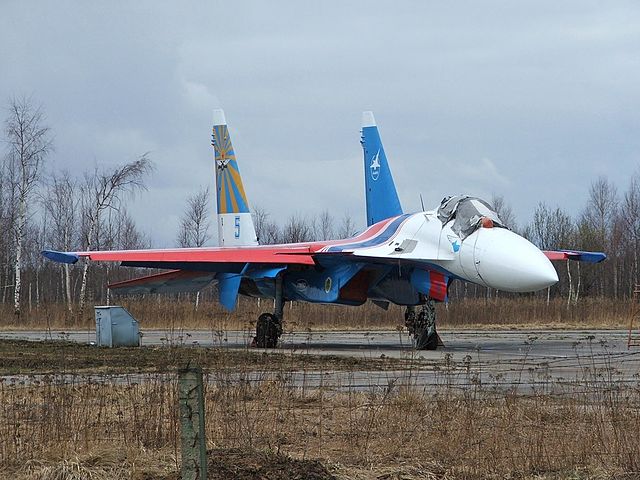The sumptuous welcome given to Vladimir Putin on December 6, by the two most powerful petromonarchies in the Persian Gulf stunned Westerners.
For his “working visit” to Saudi Arabia and then to the United Arab Emirates, the Russian president arrived escorted by four of his Sukhoi SU-35S fighter-bombers, which were authorised to land. Western-made Arab fighters took to the sky only to draw the white, blue and red stripes of the flag of the Russian Federation.
Pariah of the international community after his failed invasion of Ukraine on February 2022, indicted by the ICC, Vladimir Putin knew how to patiently bide his time to return to the diplomatic arena. The opportunity was given to him by the resumption of the Israeli-Palestinian conflict.
The anger of Arab-Muslim leaders and populations is growing towards America, which they criticise for its unconditional support for Israel in its war in Gaza. This great return therefore took place via the Eastern Gate, of which the Russian president has long mastered all the contours.
In Middle Eastern perceptions, the magnitude of the current destruction in Gaza has completely erased the memory of that of Mariupol. The American veto opposed, on December 8, at the UN Security Council, to an Emirati draft resolution demanding a humanitarian ceasefire – voted by thirteen members out of fifteen – increased, in the Middle East, the feeling that the United States could no longer play the role of honest broker.
Vladimir Putin immediately understood that he had a role to play. After his trip to the Gulf, he received his Iranian counterpart on Thursday in Moscow, then spoke for almost an hour on Sunday with the Israeli Prime Minister. For an international pariah, that’s not bad.
The Russian statement following this long telephone interview on the war in Gaza tersely indicated that Russia was “ready to provide all possible assistance to alleviate the suffering of civilians and defuse the conflict.”
Even if, practically, there is little chance that Russia will soon succeed in “defusing” the conflict, these words are effective in terms of propaganda. Externally, they strengthen Putin’s influence with the “global south”; internally, this burnishes his image with the Russian people, whose votes he will seek on March 17, to obtain a fifth term.
It would be an exaggeration to say that the petromonarchies, neutral in the Russian-Ukrainian conflict, would voluntarily seek their Finnishisation, but it is clear that a certain alignment is currently taking shape between Russia and the rich oil-rich Arab regimes.
This alignment is based on common political and economic interests. Politically, the petromonarchies and Russia share the same detestation for the human rights lessons that the West likes to lavish, and the same distrust of its taste for sanctions, which they consider to be sneaky wars.
We remember that at the G-20 in Buenos Aires, in November 2018, two leaders, considered the black sheep of international relations, spent their time together, comforting each other: Vladimir Putin and MBS (Mohammed ben Salman, the crown prince governing Saudi Arabia). The first was accused of its annexation of Crimea and its interference in the Ukrainian Donbass in 2014 and 2015; to the second, the assassination, on October 2, 2018 at the Saudi consulate in Istanbul, of the opponent Jamal Khashoggi, an occasional columnist for the Washington Post.
Faced with moral harassment from the West, a sort of axis of solidarity for authoritarian regimes was already taking shape.
This solidarity between black sheep reminded us of the Treaty of Rapallo, signed on April 16, 1922, between Weimar Germany and Lenin’s Soviet Union. It led to clandestine aid for German rearmament, which would be carried out on Soviet territory throughout the twenties.
Economically, the interests of the Gulf petromonarchies and Russia have been aligned since the latter joined OPEC+ in 2016. On Wednesday, December 6, Saudi Arabia, the United Arab Emirates and Russia decided together to reduce their oil production, in order to stem the fall in prices.
In 2022, many Western commentators announced the end of Putin. It is true that he had made the gigantic error of underestimating the Ukrainian will to resist and overestimating the value of the Russian army. But he has just demonstrated that he is still not dead politically and that he remains an excellent chess player.
This post first appeared in The International Chronicle of Figaro on Tuesday December 12, 2023.





